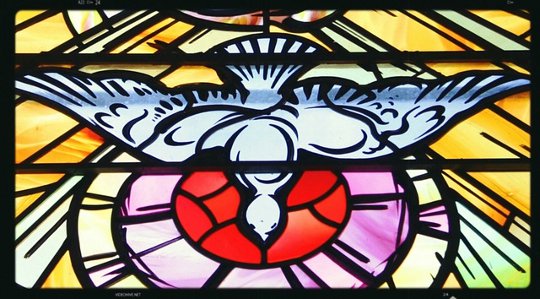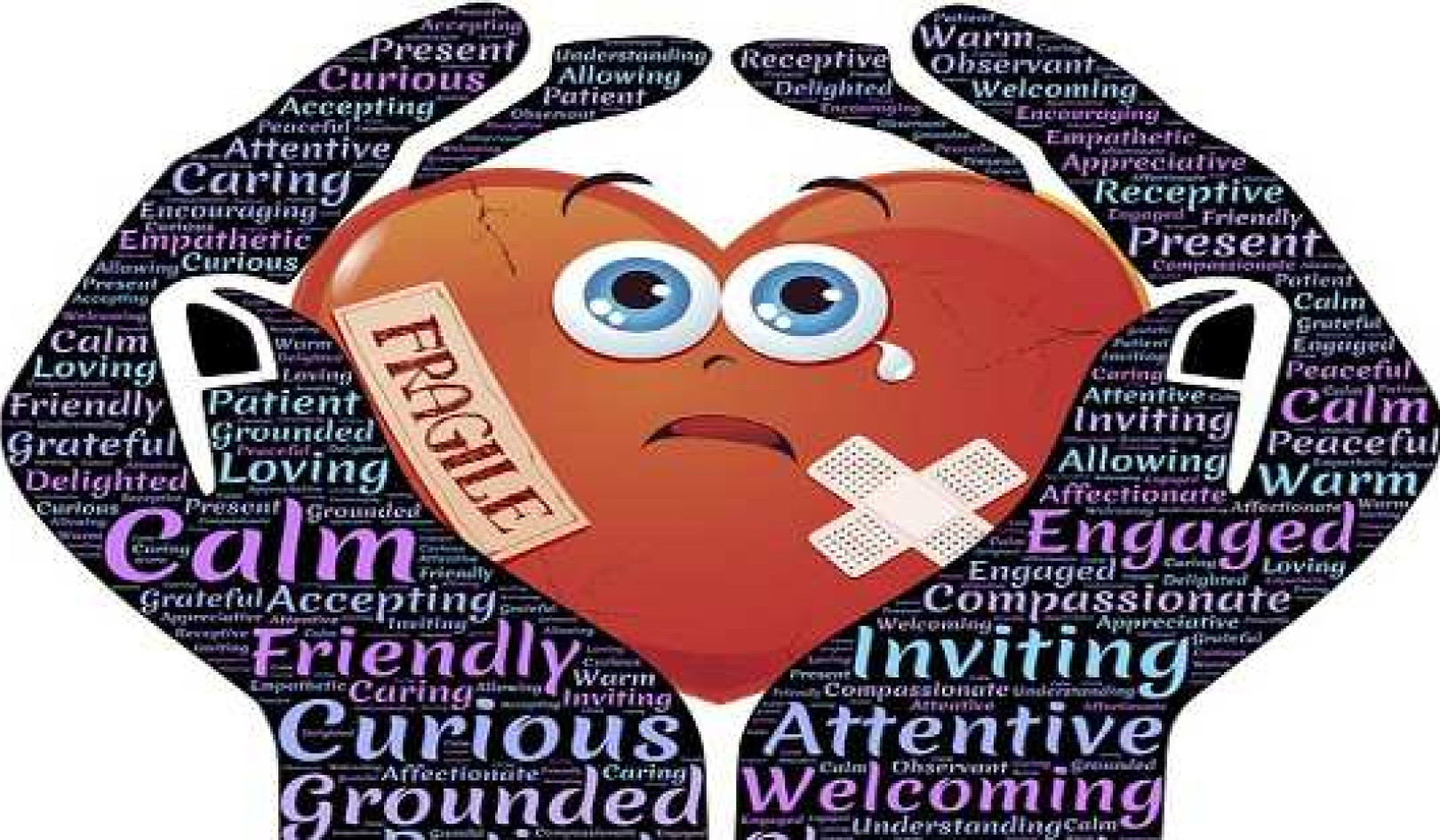
Author's Note: The Christian scriptures and most traditional theologians refer to the Holy Spirit as masculine in gender. Yet, throughout the Hebrew and early Christian scriptures, references to the divine Presence that represents the Spirit of God often use the feminine, as in the Hebrew words ruach and shekinah, and the Greek pneuma. Although God comprises both genders, the English language requires a choice of gender for personal pronouns. Because I have come to think of the Holy Spirit as feminine, I choose to refer to the Spirit throughout this book as She or Her. If that makes you uncomfortable, feel free to substitute the pronouns of your choice.
When I say that the goal of all my work -- whether writing books or giving workshops and healing services -- is to reinvent Christianity, some people think this is either blasphemous or downright presumptuous. Who am I to reinvent the religion of our forefathers? And yet the truth is that people have been reinventing Christianity for the past 2,000 years, almost from the time it began.
Just think of the sacraments, to take the most obvious example. Among the earliest Christians, the major ritual consisted of gathering in home churches and sharing a meal that became known as the eucharist, from the Greek for "giving thanks". Communion was almost certainly the first, and, for a time, the only sacrament in common celebration by the followers of Jesus. Baptism of new members into the community in memory of the baptism of Jesus by John the Baptist, public confession, the ordaining of clergy, last rites, the sanctification of weddings, and confirmation all followed suit. But in returning to scriptural roots during the Protestant Reformation, many reformers insisted that the only sacraments that actually took place in the Gospels were baptism, communion, and matrimony, and dropped the rest. Some dropped the very idea of sacraments altogether.
On an even more startling level, most modern biblical scholars agree that the first Christians, including Peter and Paul, expected Jesus to return in apocalyptic glory in their own day. That's probably one of the reasons why Paul had such a low regard for marriage. He didn't see any burning need to procreate if the Second Coming was just around the corner, and he advocated marriage largely as a preventive measure against fornication.
In various places in the scriptures, Peter makes repeated statements to the effect that Jesus will be returning soon, and the Letter of James (5:8) says, "The coming of the Lord is very near." If the Bible is the inerrant word of God, as so many fundamentalist Christians believe, how could Peter and Paul and James have misunderstood what would happen in the near future? Isn't it more likely that the first disciples' understanding of Jesus' message and intentions evolved over time, as happened with the followers of the Buddha before him and of Muhammad after him? Even the New Testament itself differs significantly in the Catholic and Protestant versions -- the former including a half-dozen books that are not recognized as canonical by Protestants.
We could just as easily examine the doctrine of priestly celibacy still adhered to so firmly by the Roman Catholic church. As we now know, Peter and most of the apostles were married, as were many of the early popes. Until about the 11th century, celibacy among the clergy was either optional or not stringently enforced. But as the church amassed more land, it sought to prevent it from being passed on to the offspring of its clergy, and so began enforcing celibacy for economic reasons. Despite protestations to the contrary, the church's insistence on priestly celibacy is unrelated to the demands of ministerial life -- as proven by the many thousands of Protestant, Orthodox Christian, Jewish, and Muslim clerics who have active ministries yet remain free to marry and raise families.
Continuing to more recent times, many elements of Catholic dogma -- including the Assumption of Mary and papal infallibility -- were not even codified until the 19th century. The Vatican Council of the early 1960s radically realigned the roles of clergy and laity, and introduced reforms so disturbing to some (changing the language of the Mass from Latin to the vernacular, for instance) that many priests, nuns, and monks left the religious life.
Early Christianity Was Geared to the Everyday Life of People
Like all genuine spiritual paths, when Christianity first emerged, it was geared to the everyday life of people. It helped them answer the burning questions of their day and deal with practical issues, just as Jesus had done when he originally taught what eventually became known as the Gospels. Jesus spoke of the lilies of the field and the birds of the air, and used metaphors based on harvests, food and wine, and servants and masters. He was talking to an agricultural society, and they understood what he was saying. But as Christianity advanced in years and became more institutionalized, its concepts became theologically more sophisticated, yet dealt less and less with practical issues.
If Christianity has been reinvented for all these centuries by everyone from breakaway reformers to the very hierarchy of the church, doesn't that mean that those of us in the trenches have as much of a right to do so? All spiritual paths are continually being reinvented and brought back to earth, and that is what this book (Holy Spirit) aims to do -- to return spiritual principles to their practical applications, stripped of their dogmatic baggage. Although I am a disciple and devotee of Jesus, I don't practice Christianity as it is presented today, especially in the fundamentalist version with its rigid beliefs and dogmatic practices, or in the rule-bound teachings of the Roman Catholic church. I prefer a path more in keeping with the Spirit of Jesus, which is the theme of this book. Part of my message is that you can follow the path of the Spirit of Jesus without becoming a member of any particular denomination.
How the Spirit of Jesus Manifests In Each One Of Us
What is of supreme importance is how the Spirit of Jesus manifests in each one of us. People talk frequently about "the human spirit", yet I'm not so sure that there is such a thing. Rather, it is the Spirit of God appearing within us in various frequencies depending on our thought patterns. If that Spirit is not allowed to manifest in an appropriate format, it will seek to express itself any way it can. I sometimes think that when people get up and cheer their team uproariously at a sporting event, they are doing so because they are not permitted to express their joy in most religious gatherings. I believe that many people also go to taverns and get high in various ways or engage in high-risk sexual behavior out of a need to express pleasure that is not allowed to be expressed where it ought to be primarily -- in religious or spiritual surroundings.
Some Christian sects seem to act very emotional at their gatherings, but sometimes I sense that that's a cover for a lack of genuine feelings of love, joy, and peace. I'm not against spontaneous expressions of joy -- singing, dancing, chanting -- but I am against anything that appears to be excessive emotionalism. I get turned off when evangelists start jumping over lecterns, screaming, or throwing their jackets around.
Some evangelists have recently begun a trend called "holy laughter" that to me is nothing but forced hilarity. Having been invited to appear as a Catholic priest on various Christian television programs, I've often been struck by the difference between the on-camera and off-camera demeanor of such evangelists and their crews.
John gives the best answer to this extreme behavior in his first Letter (4:1): "Do not believe every spirit, but test the spirits to see whether they are of God; for many false prophets have gone out into the world." As Jesus himself pointed out, "Not everyone who says Lord, Lord, will enter the kingdom." Jesus was more concerned with exploring spiritual depths than reveling in emotional highs. Excessively or superficially emotional behavior damages the credibility of the genuine message of Jesus. This is, in large part, what has turned off so many thinking people to the concept of the Holy Spirit, whose name is often invoked at these televised gatherings.
Evaluating The Worthiness Of Different Teachers
In evaluating the worthiness of different teachers and their presentations of the message of Jesus, you need, above all, to keep your objectivity. A healthy skepticism in this realm is not to be confused with cynicism. The key to making these kinds of distinctions lies in the way the Holy Spirit manifests in you, which is directly related to how you treat other people. All the actions of Jesus in the Gospels boil down to acts of kindness, compassion, or healing directed at other individuals or at humanity as a whole. But the churches have lost that orientation.
In the Catholic church, for instance, when people are divorced, they are denied the sacrament of communion. Although the church touts the eucharist as the greatest source of strength and comfort, when people are most in need of it, the church denies it to them as a punishment. That's not "good news", as the Gospel is known; that's bad news.
And so if my interpretation of the nature of the Holy Spirit and how that Spirit works within us does not jibe with what the churches and theologians have taught over the years, I am not concerned. My mission, as I have said in the past, is to make God credible once again to the people who have lost faith in organized religion but still desire a spiritual life. I base my teachings about the Spirit on my own immediate experience of the Spirit at work in my life and in the lives of the thousands of people with whom I have shared those teachings and who have participated in my healing services. These teachings are not abstract statements, but have been road-tested. They are intended to make your life easier and more fulfilling in a direct way.
In his sermons, the Buddha repeatedly urged the curious to "come and see", to investigate his teachings and techniques for themselves, rather than to base their beliefs on faith. In fact, he often said "Don't believe me!" -- meaning to try his system for yourself, and if it works for you, then believe it.
I make the same invitation to all of you with regard to the teachings in this book. Don't be concerned about whether they correspond to what you may have been taught about the Holy Spirit as a child. Although I feel tremendous faith in the presence of the Spirit in my life and in the world, I don't expect you to begin with that premise. Rather, retaining both your objectivity and an open mind, see if what I have to say about the Spirit corresponds to your own experience, and whether the spiritual exercises I suggest help you live your life more fully. In the end, that's the only test that matters.
Article Source:
 Holy Spirit
Holy Spirit
by Ron Roth.
©2000. Reprinted with permission of the publisher, Hay House Inc., www.hayhouse.com.
About The Author

Ron Roth, Ph.D., was an internationally known teacher, spiritual healer, and modern-day mystic. He is the author of several books, including the bestseller The Healing Path of Prayer, and the audiocassette Healing Prayers. He served in the Roman Catholic priesthood for more than 25 years and is the founder of Celebrating Life Institutes in Peru, Illinois. Ron passed away on June 1, 2009. You can learn more about Ron and his works through his website: www.ronroth.com
Watch a video: The Power of Love and How to Use it to Improve Your Life (Carol Dean interview with Ron Roth) (includes a cameo appearance by Deepak Chopra)





























